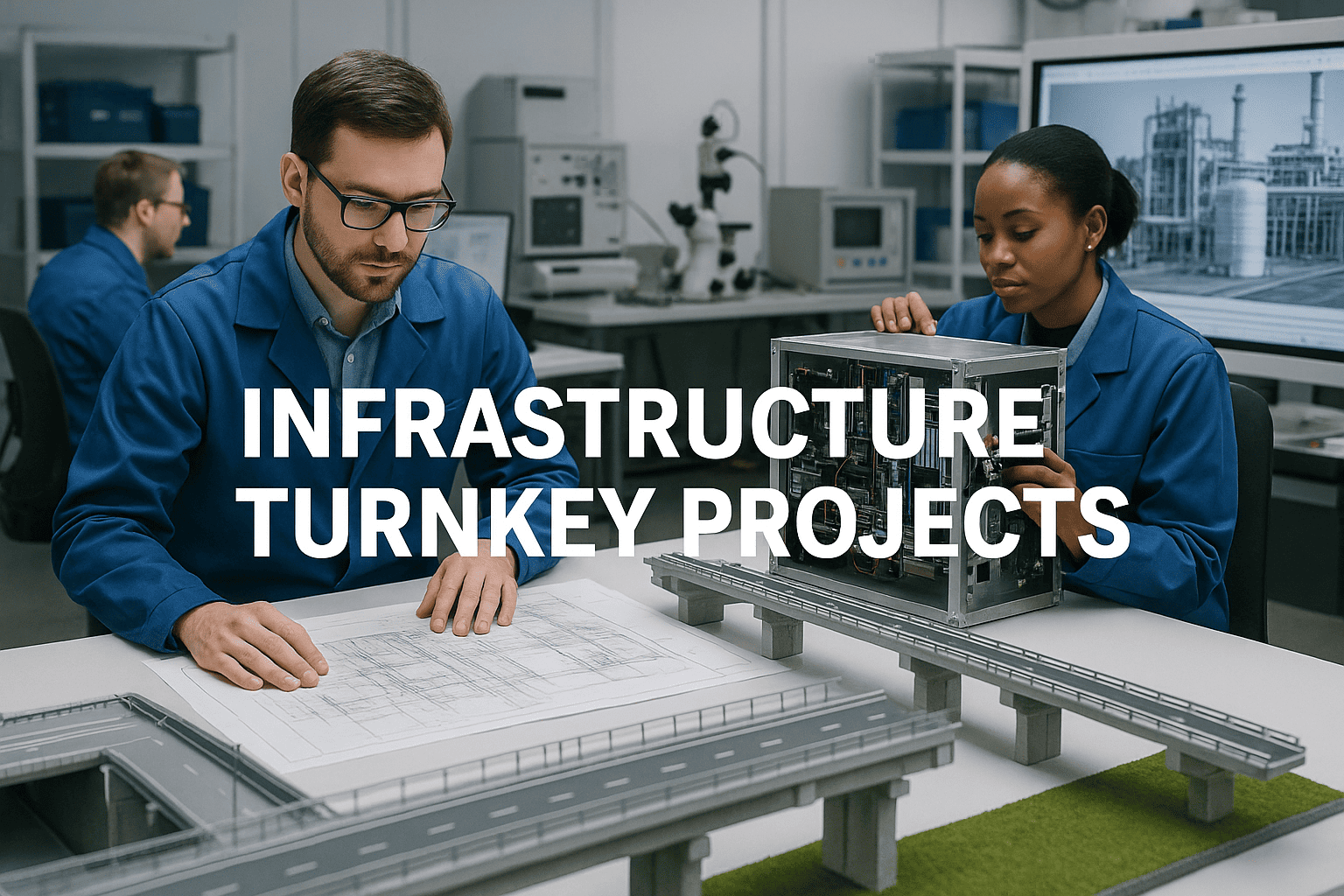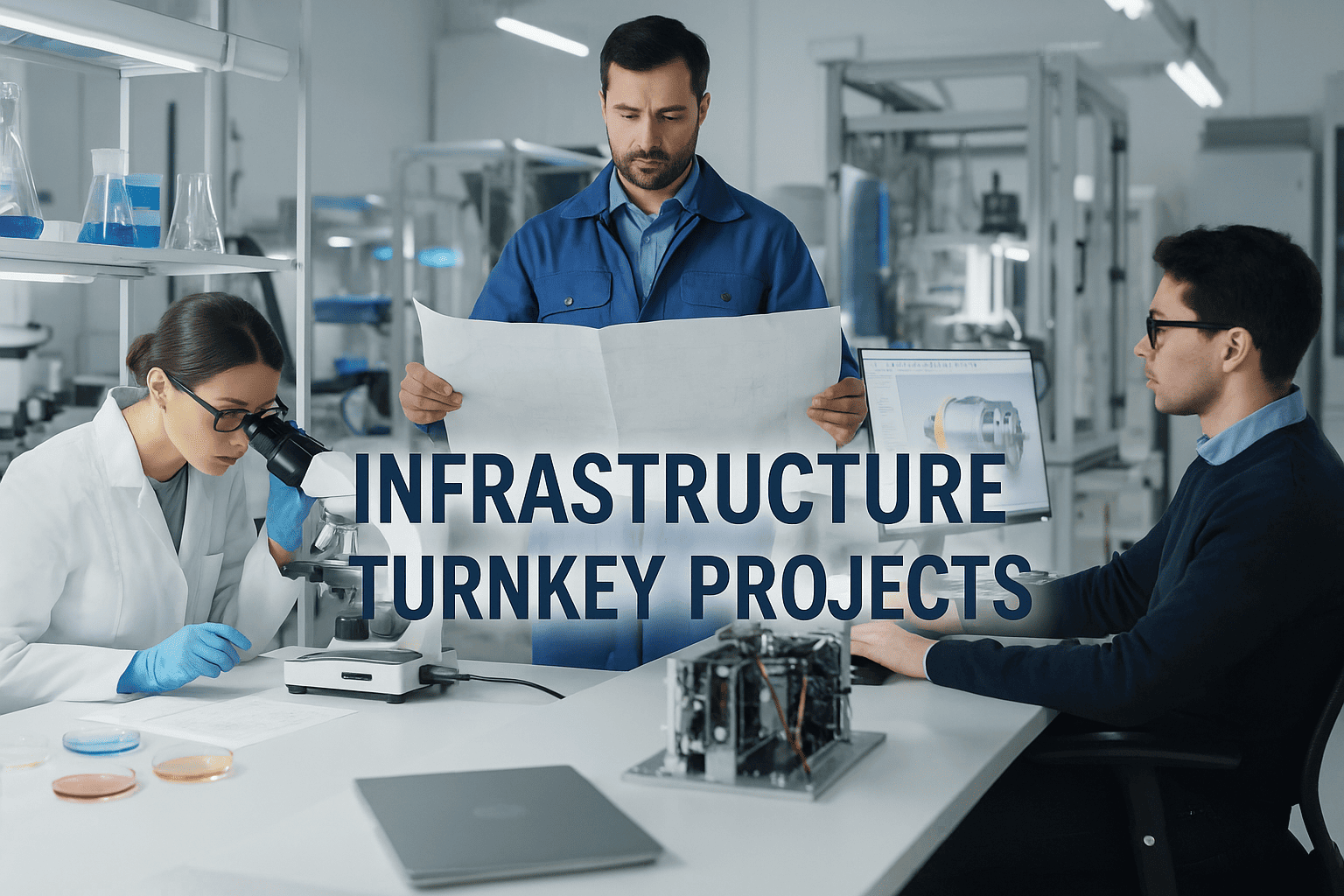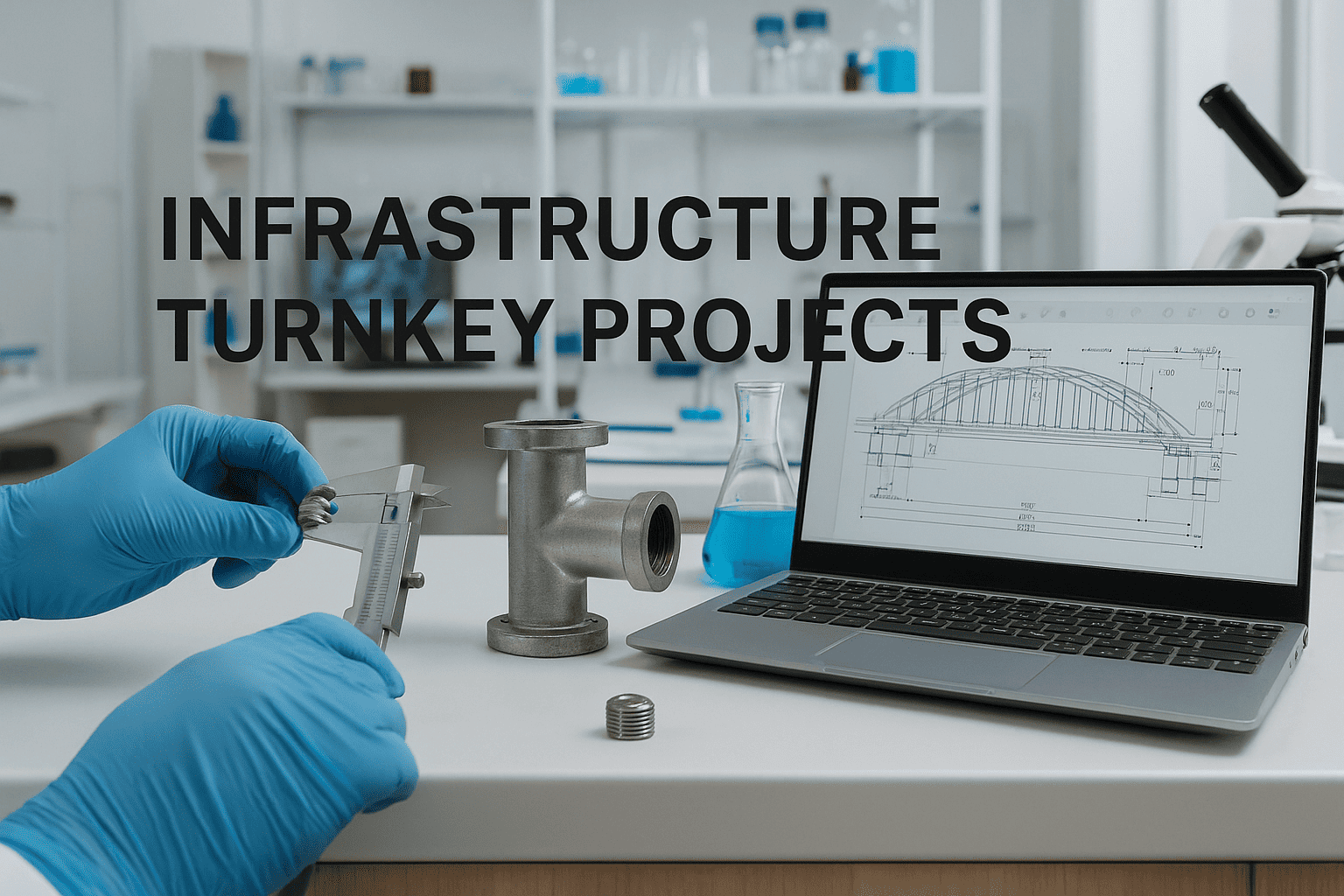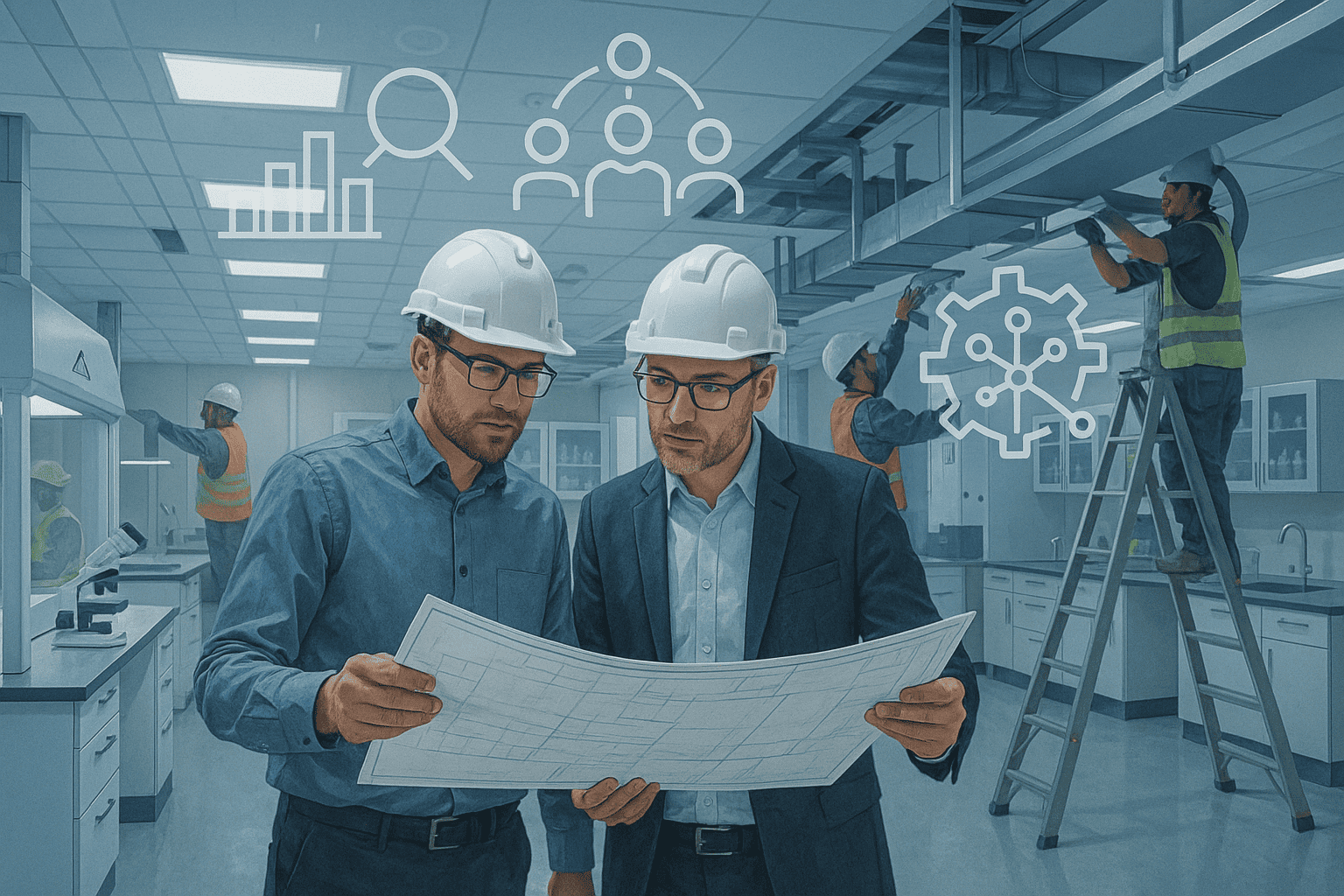
Infrastructure development is the backbone of economic growth in any country. In India, where rapid urbanization and industrial expansion are driving demand for new highways, railways, airports, and smart cities, timely execution of projects is more important than ever. Yet, one of the biggest challenges faced by the sector is project delays. These delays not only escalate costs but also impact public trust and investor confidence.
So, how can Indian infrastructure companies minimize delays and deliver projects on time? Let’s break it down into strategies and best practices that can make a real difference.
Why Do Infrastructure Turnkey Projects Face Delays?
Before talking solutions, it’s worth understanding the root causes of delays. Common issues include:
1- Land acquisition problems – Lengthy approval processes and disputes often stall construction.
2- Regulatory hurdles – Clearances from multiple government bodies slow down timelines.
3- Financing gaps – Inadequate funding or delayed disbursement affects project momentum.
4- Poor planning – Unclear scope, inadequate design studies, and weak feasibility reports create inefficiencies.
5- Contractor inefficiency – Weak contractor management or poor resource planning leads to bottlenecks.
6- External factors – Monsoon, labor strikes, or supply chain disruptions also contribute.
Delays in Infrastructure projects in India are not new, but forward-looking companies are adopting strategies to counter them.
Strategy 1: Better Project Planning & Feasibility Studies
The foundation of any successful infrastructure project is robust planning. Companies must invest time and resources in detailed feasibility studies that include:
- Environmental impact assessments
- Land surveys and soil testing
- Cost-benefit analyses
- Demand forecasting
By addressing challenges before construction begins, companies can avoid unexpected roadblocks later. For example, projects executed in Maharashtra often face unique regional challenges such as monsoon intensity or specific land clearance issues. Companies that factor these into planning ensure smoother execution of Infrastructure Turnkey projects in Maharashtra.
Strategy 2: Streamlined Approvals & Compliance
Regulatory approvals can drag projects for months or even years. A proactive approach can change this:
- Engage with government authorities early in the planning phase.
- Maintain transparency in documentation to avoid rejections.
- Use technology platforms for real-time tracking of clearance requests.
Some progressive companies are even deploying dedicated liaison teams whose sole responsibility is to manage approvals. This reduces bottlenecks and keeps work moving forward.
Strategy 3: Adoption of Technology
Modern infrastructure companies are turning to digital solutions to speed up execution:
- Building Information Modeling (BIM): Helps detect design conflicts early.
- AI-driven project management software: Tracks progress and allocates resources effectively.
- Drones and GIS mapping: Speed up surveys and monitoring.
- IoT sensors: Provide real-time data on equipment usage and safety.
Technology not only improves efficiency but also increases accountability across all stakeholders. For example, portals like chameza.in, labturnkey.in, and labcreator.in show how digital tools can support project planning and management in industries like laboratory infrastructure. The same principles apply to large-scale construction projects.
Strategy 4: Stronger Contractor & Vendor Management
One weak link in the contractor chain can derail an entire project. Best practices include:
- Pre-qualification checks before appointing contractors.
- Linking payments with milestone achievements.
- Continuous performance monitoring.
- Creating a database of reliable vendors and subcontractors.
Companies that standardize vendor management practices reduce risks and ensure consistent project quality.
Strategy 5: Financial Discipline & Risk Management

Delayed payments are a major reason why projects slow down. Companies can counter this with:
- Structured financing models (PPP, BOT, hybrid annuity).
- Dedicated escrow accounts to ensure timely payments.
- Contingency budgets for unexpected cost escalations.
- Risk-sharing contracts to distribute responsibilities fairly.
This is particularly critical for mega Infrastructure turnkey projects in India, where even minor funding hiccups can cause huge delays.
Strategy 6: Focus on Workforce & Training
Skilled manpower is the lifeblood of construction. Yet, many projects suffer because of labor shortages or untrained workers. Companies must invest in:
- Regular training programs for engineers and site staff.
- Safety training to reduce accidents and downtime.
- Incentives to retain skilled workers.
When laborers are motivated and well-trained, productivity increases, reducing the chances of delays.
Strategy 7: Monitoring & Accountability
A project without strict monitoring is bound to drift off course. Companies can improve accountability by:
- Setting up a dedicated Project Management Office (PMO).
- Using dashboards to track daily progress.
- Implementing third-party audits for unbiased evaluation.
- Establishing clear KPIs for every stakeholder.
These measures ensure that everyone—from the project head to the contractor on-site—remains aligned with timelines.
Strategy 8: Collaboration with Local Communities
Public opposition is another hidden cause of delays. Companies that engage with local communities and address concerns related to relocation, environment, or livelihood face fewer disruptions. Transparent communication and Corporate Social Responsibility (CSR) initiatives can go a long way in building trust.
Case Studies: Completed Projects Done Right
India has seen several successful examples where companies managed to finish on or before schedule. Looking at Completed Infrastructure turnkey projects in India, the common factors include:
- Strong project governance.
- Advanced use of digital tools.
- Efficient contractor management.
- Active collaboration with government bodies.
By replicating these practices, future projects can also avoid delays and cost overruns.
Best Practices at a Glance
To sum up, here are the top best practices Indian infrastructure companies should adopt:
- Detailed feasibility studies before breaking ground.
- Early and proactive engagement with authorities.
- Leveraging technology like BIM, IoT, and AI for faster execution.
- Strict contractor evaluation and performance tracking.
- Structured financing and risk-sharing mechanisms.
- Workforce training and retention programs.
- Robust monitoring systems and accountability frameworks.
- Community engagement to minimize resistance.
The Road Ahead

India’s growth story depends heavily on its infrastructure. Delays will always be a risk, but companies that adopt smart strategies can significantly reduce them. Whether it’s a metro line in Maharashtra, a highway in Gujarat, or a smart city project in Delhi, the principles remain the same—plan better, use technology, manage finances wisely, and keep accountability high.
As examples from Completed Infrastructure turnkey projects in India show, timely execution is possible when strategy meets discipline. The challenge for today’s infrastructure companies is not just to build, but to build on time.
✅ FAQs
Q1. What are the main causes of delays in infrastructure projects in India?
Delays are usually caused by land acquisition issues, slow regulatory approvals, financing gaps, poor planning, and contractor inefficiency. External factors like weather or supply chain disruptions also play a role.
Q2. How can Indian infrastructure companies avoid project delays?
They can reduce delays through better planning, early regulatory engagement, technology adoption (BIM, AI, IoT), strict contractor management, and structured financing models.
Q3. What role does technology play in preventing delays?
Technology like BIM helps detect design conflicts early, drones speed up surveys, AI improves project management, and IoT sensors provide real-time monitoring, all of which reduce risks of delay.
Q4. Can you give examples of completed infrastructure projects in India that finished on time?
Yes. Metro expansions, expressways, and airport projects across India demonstrate how strong governance, technology use, and efficient financing help in on-time completion.
Q5. Why is community engagement important for infrastructure projects?
Community engagement reduces opposition, builds trust, and minimizes resistance that could otherwise stall projects during construction.










